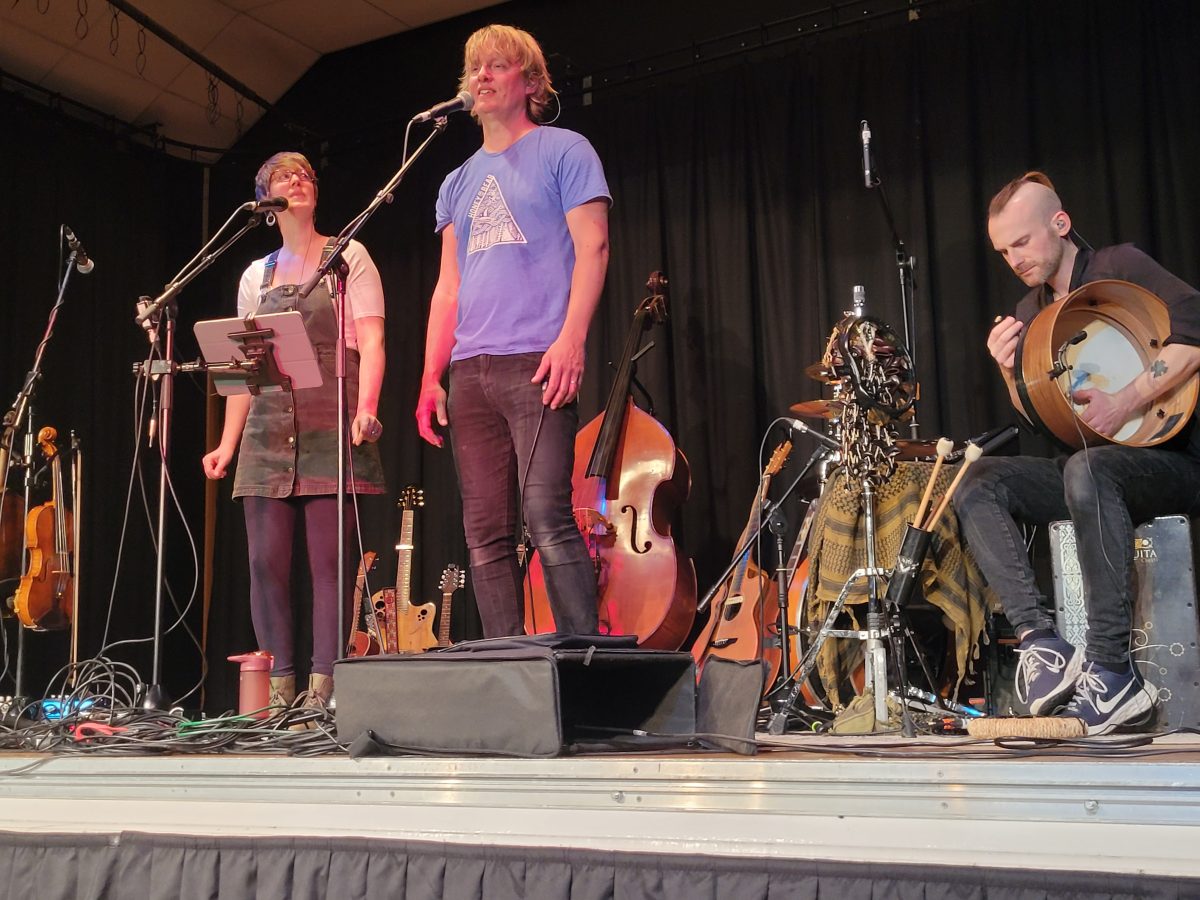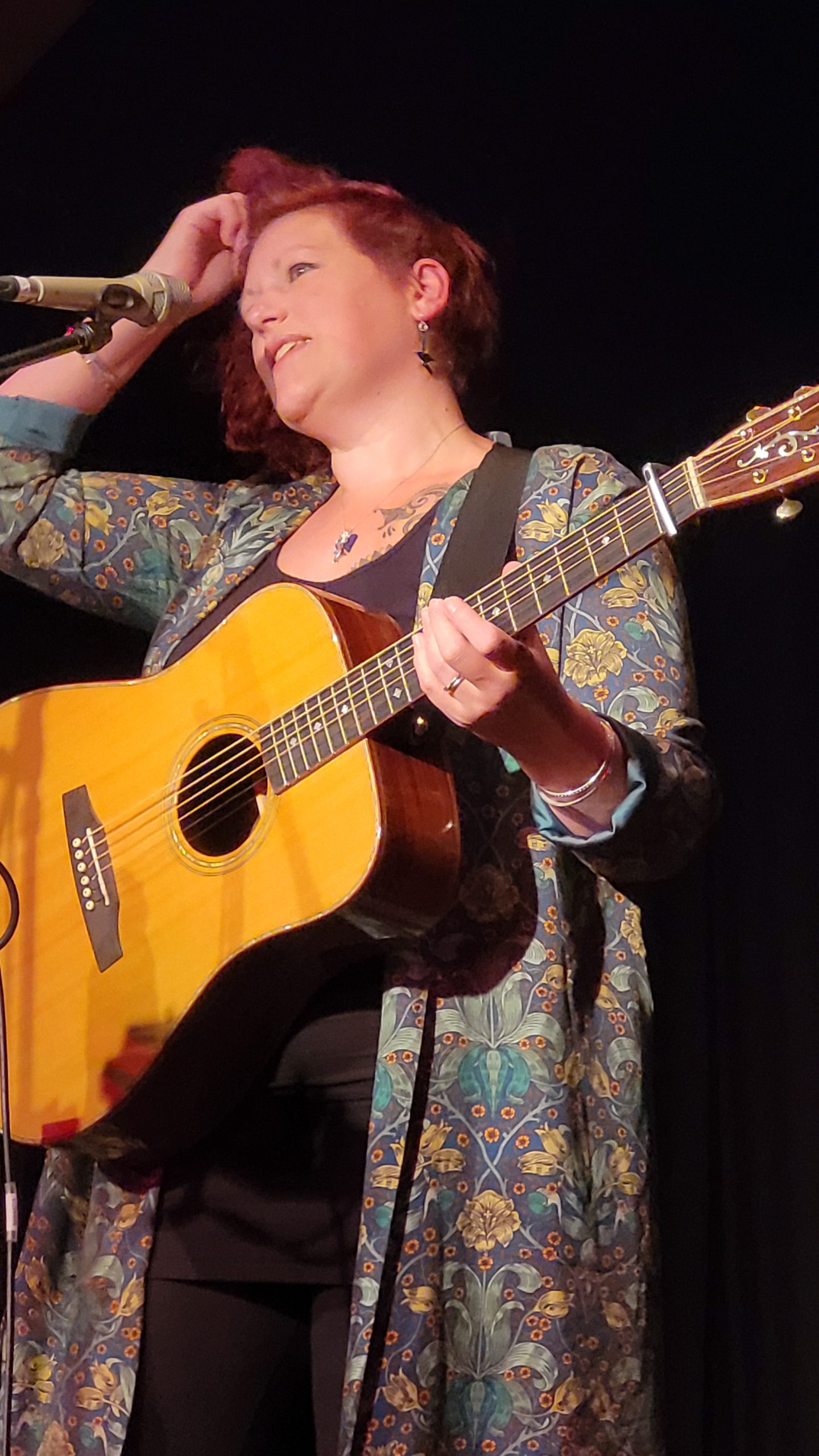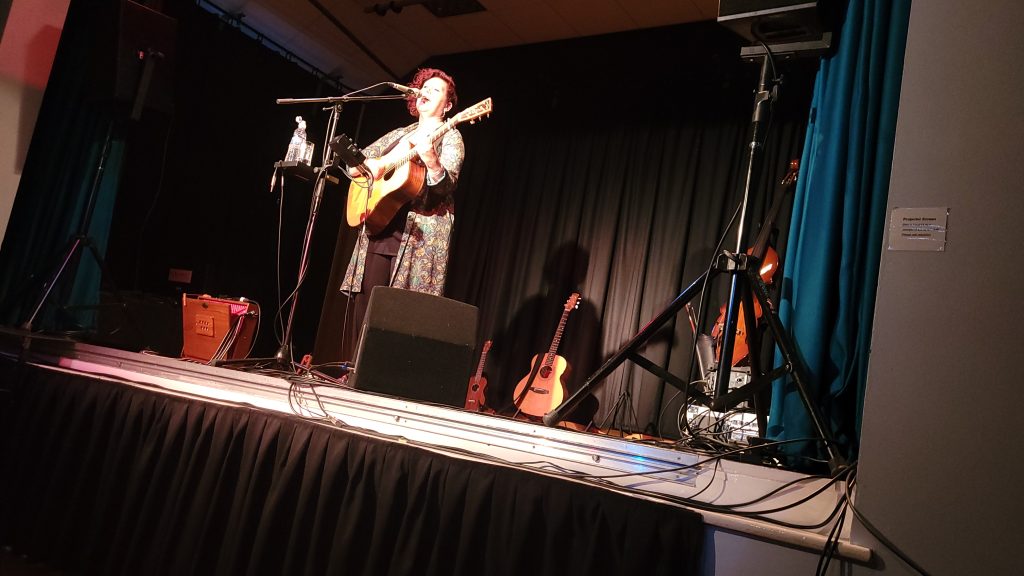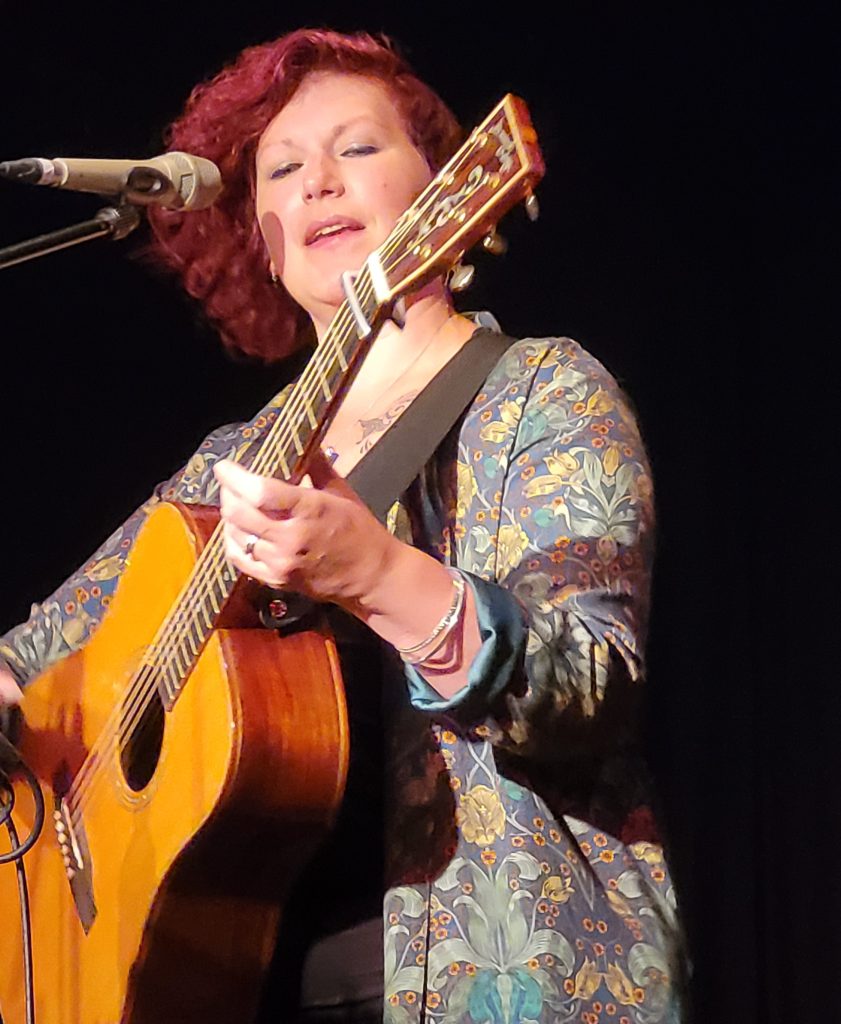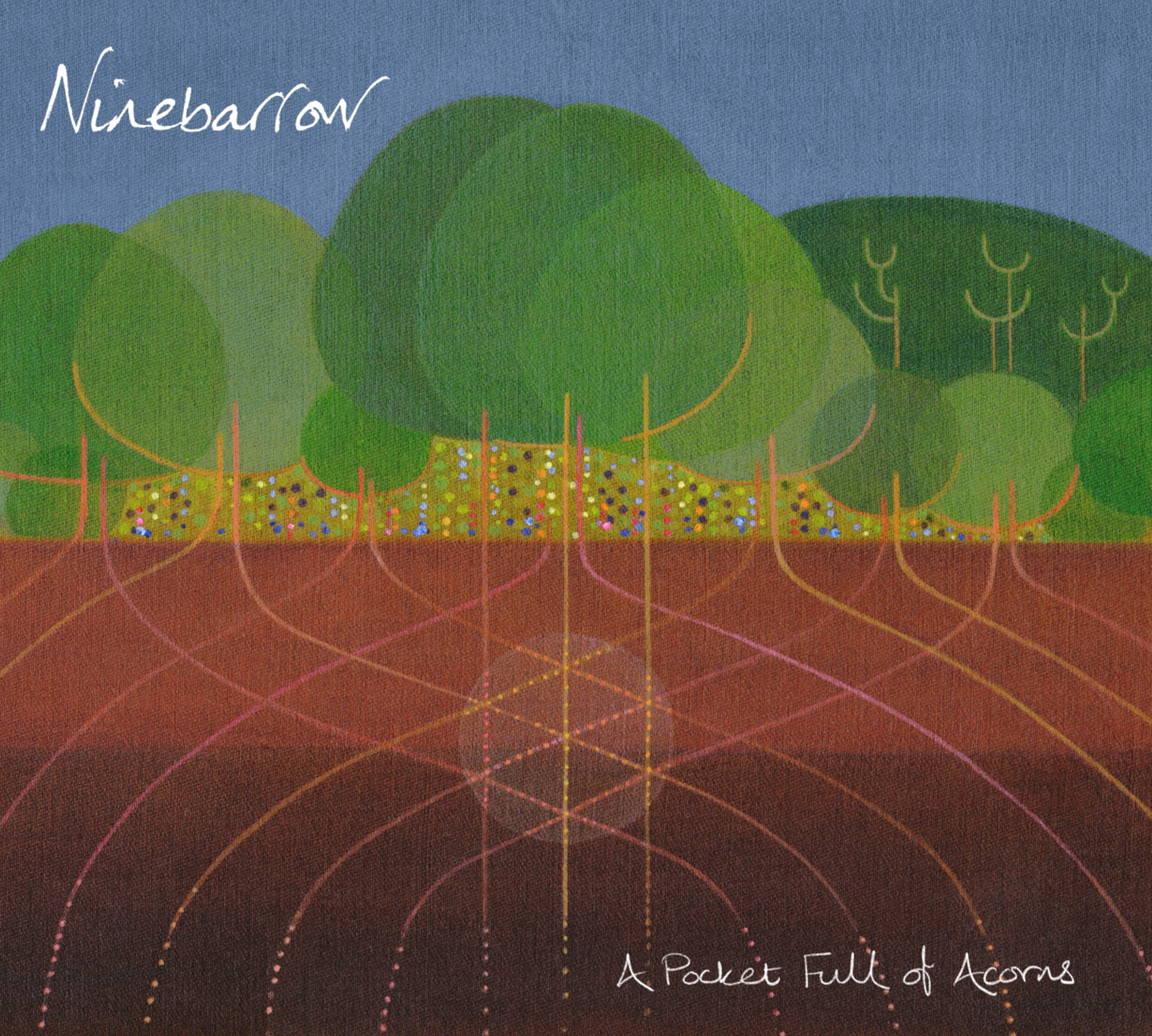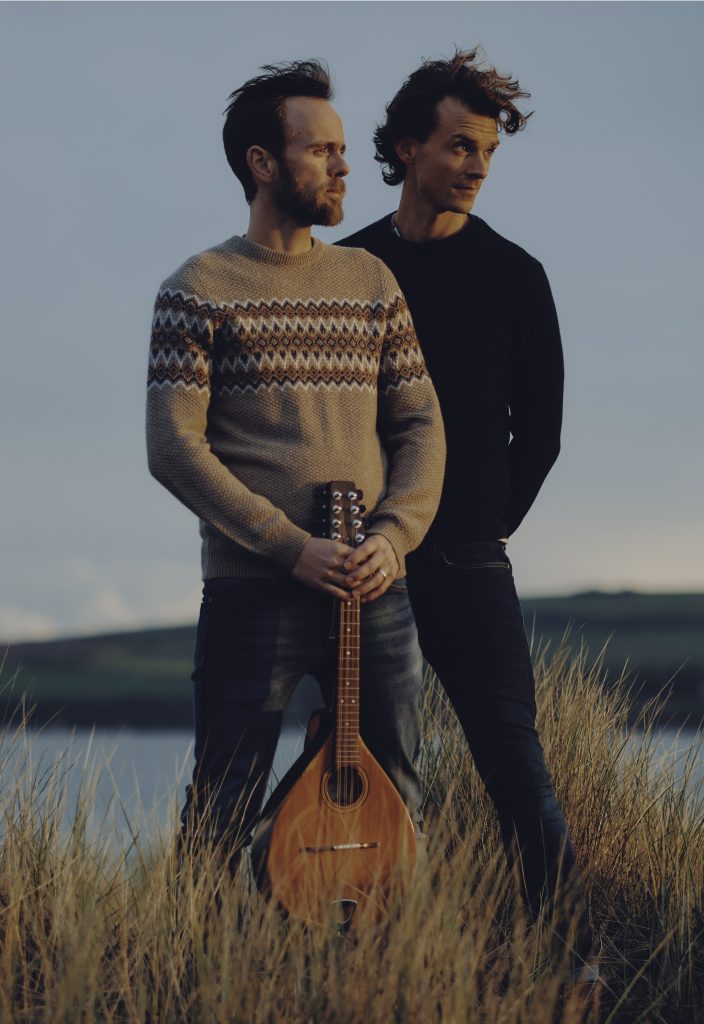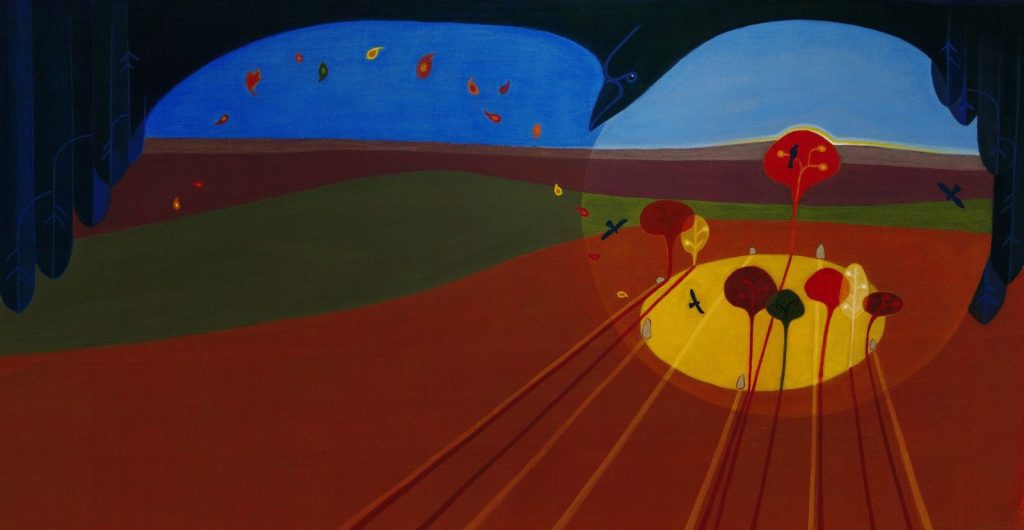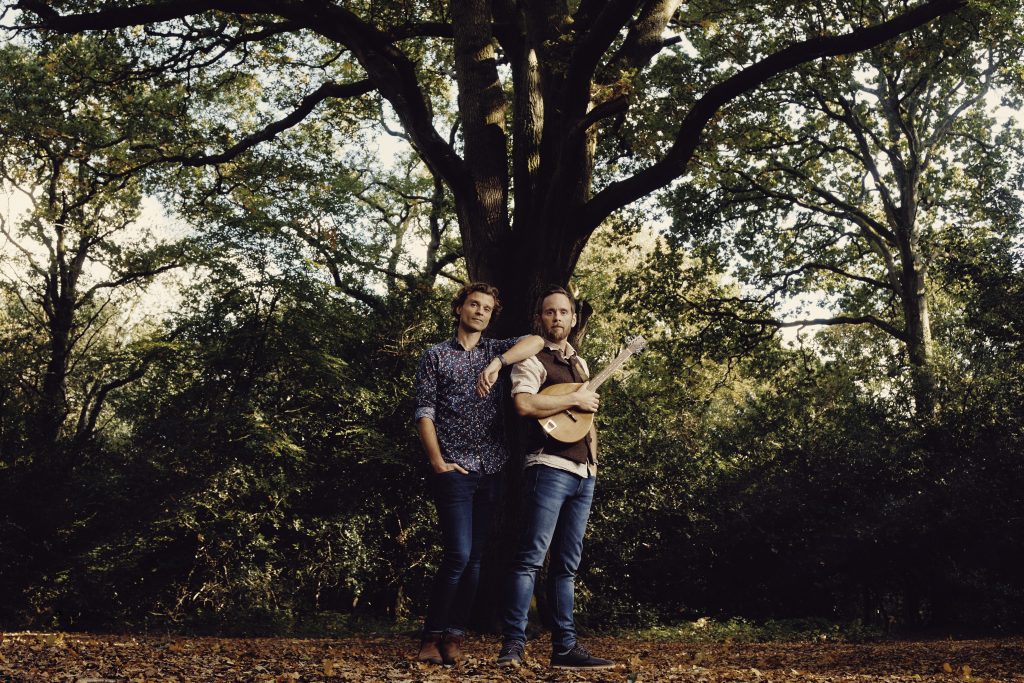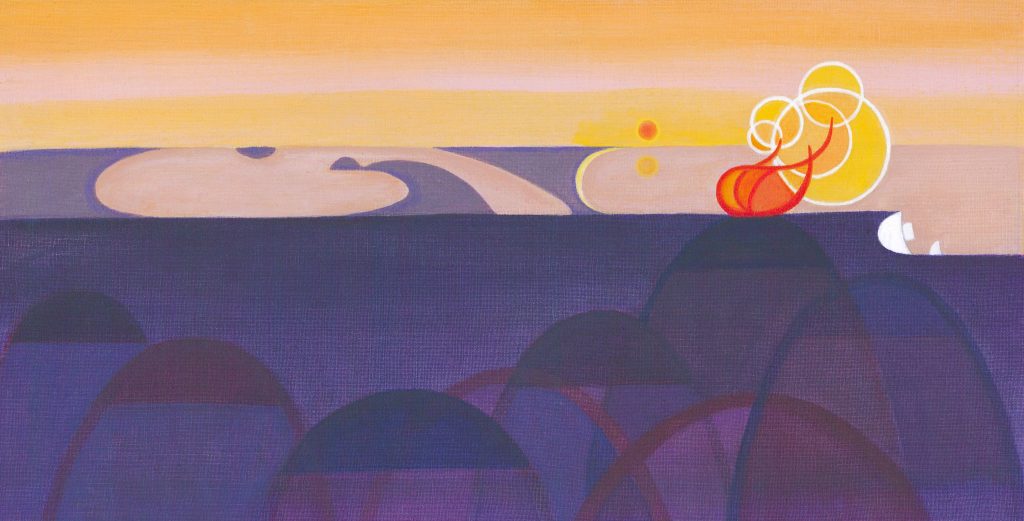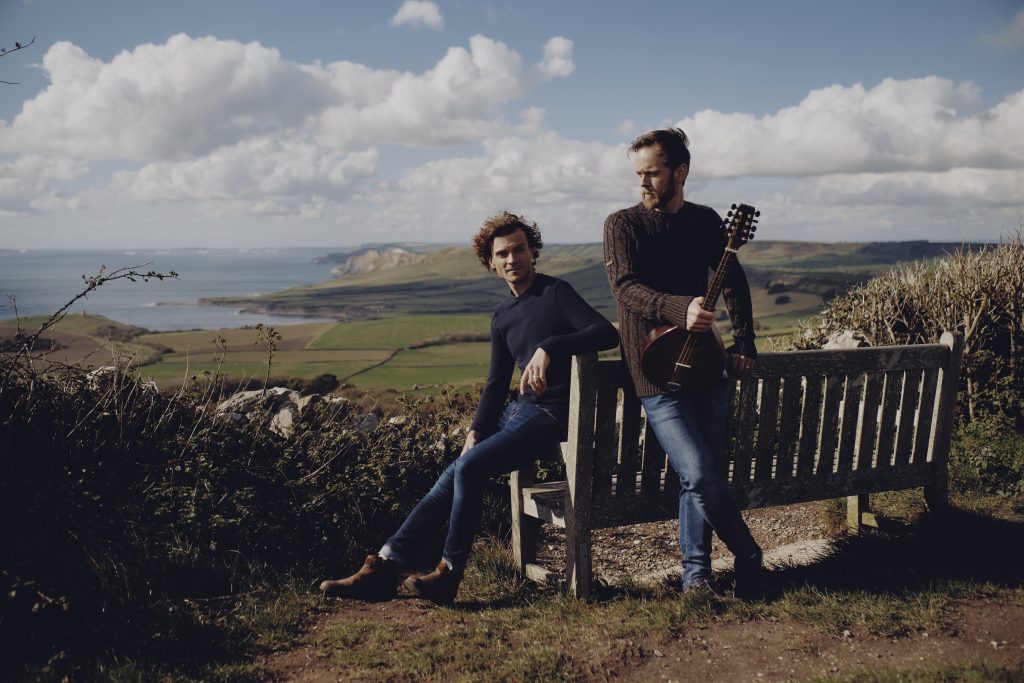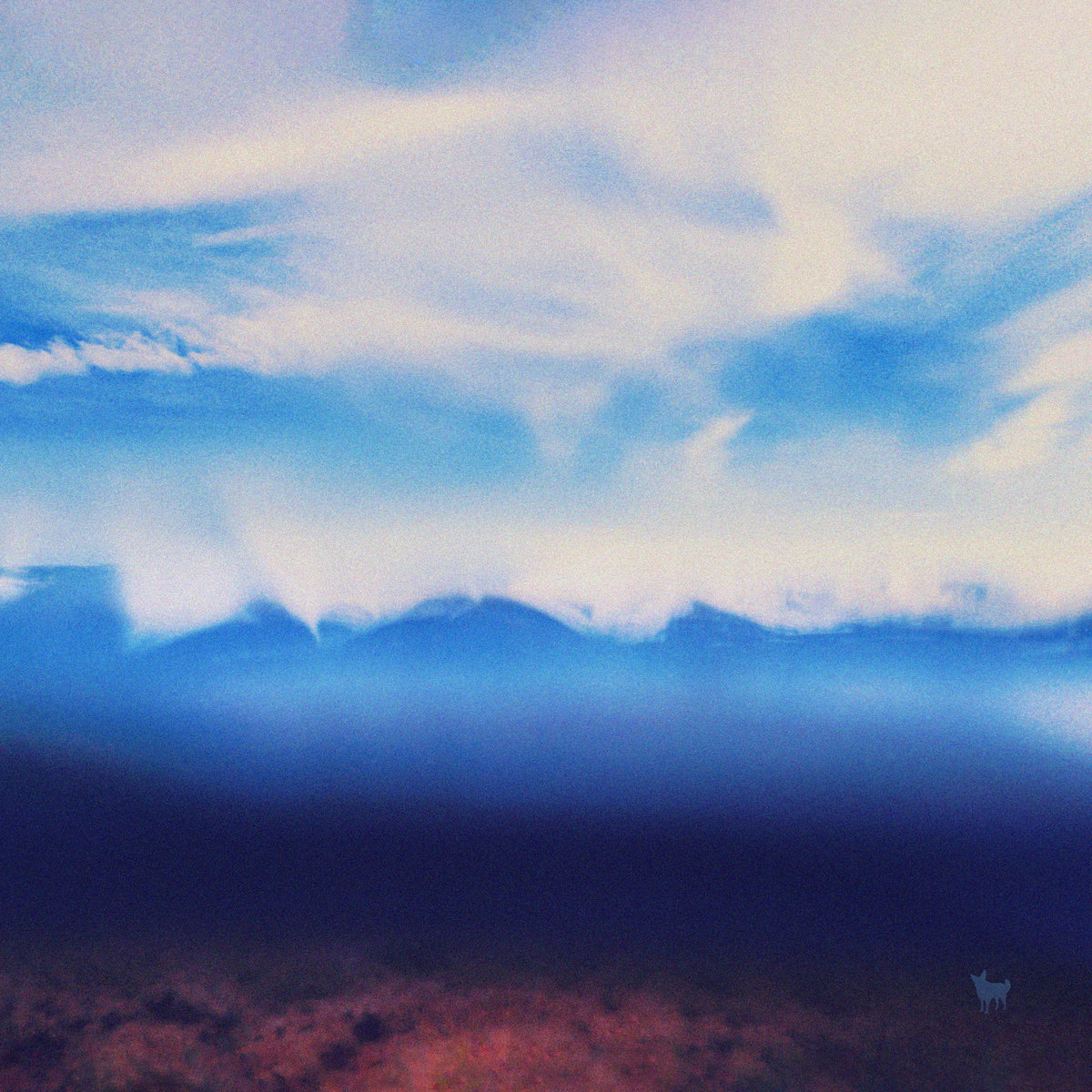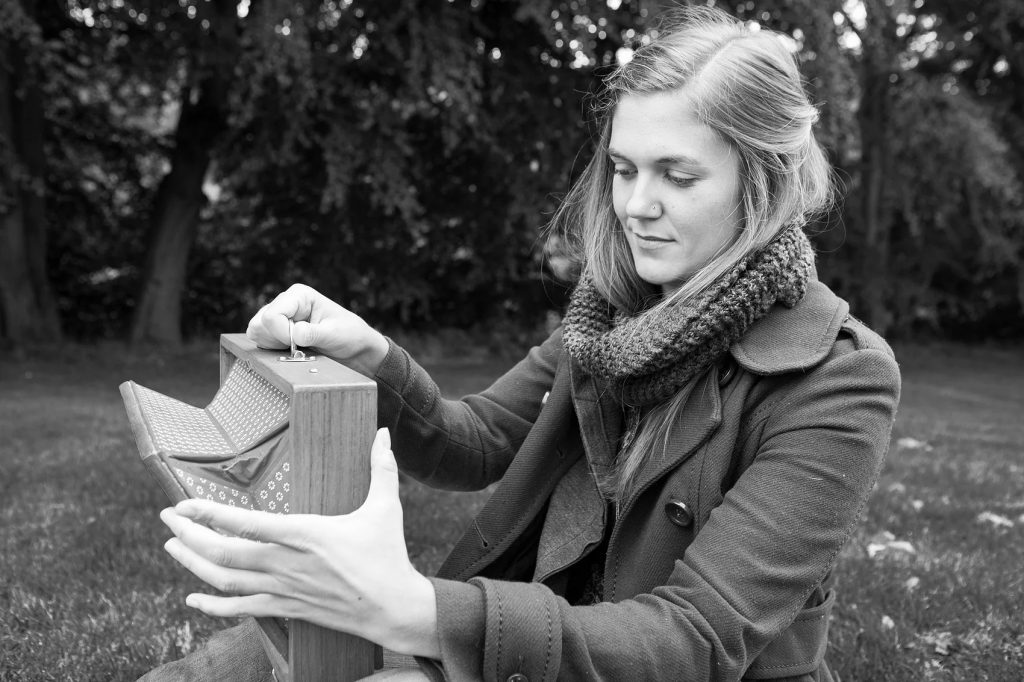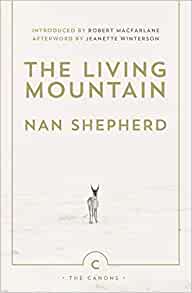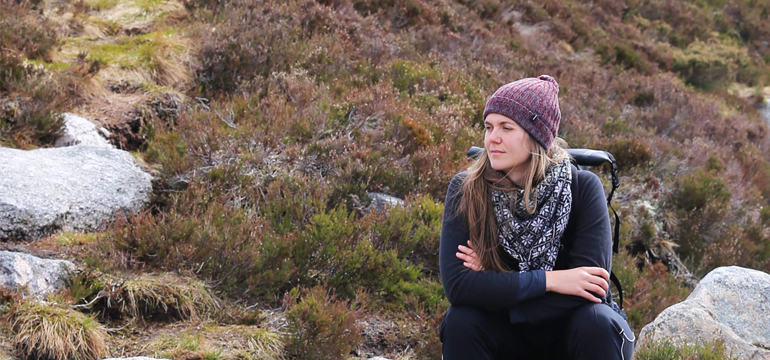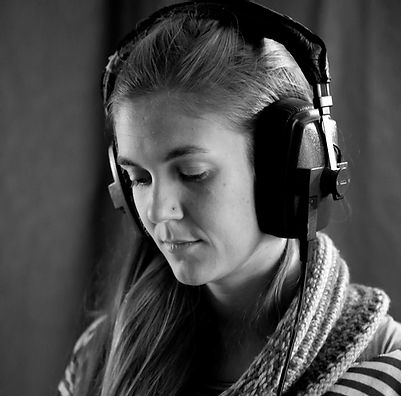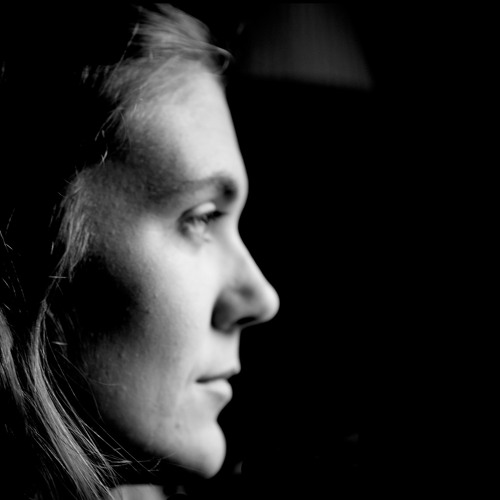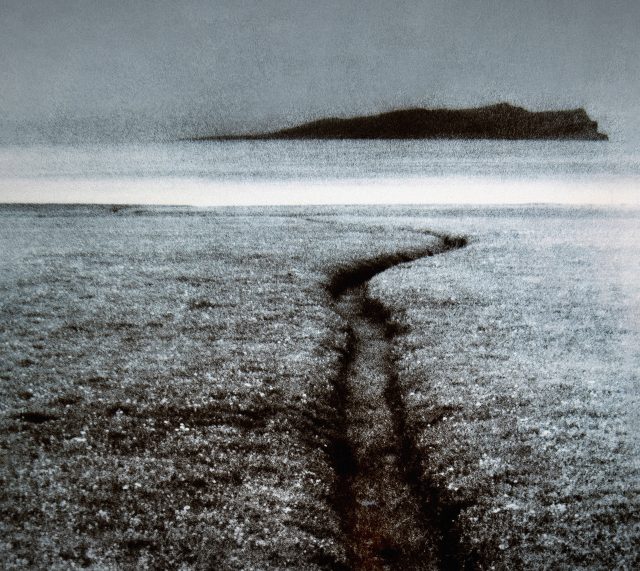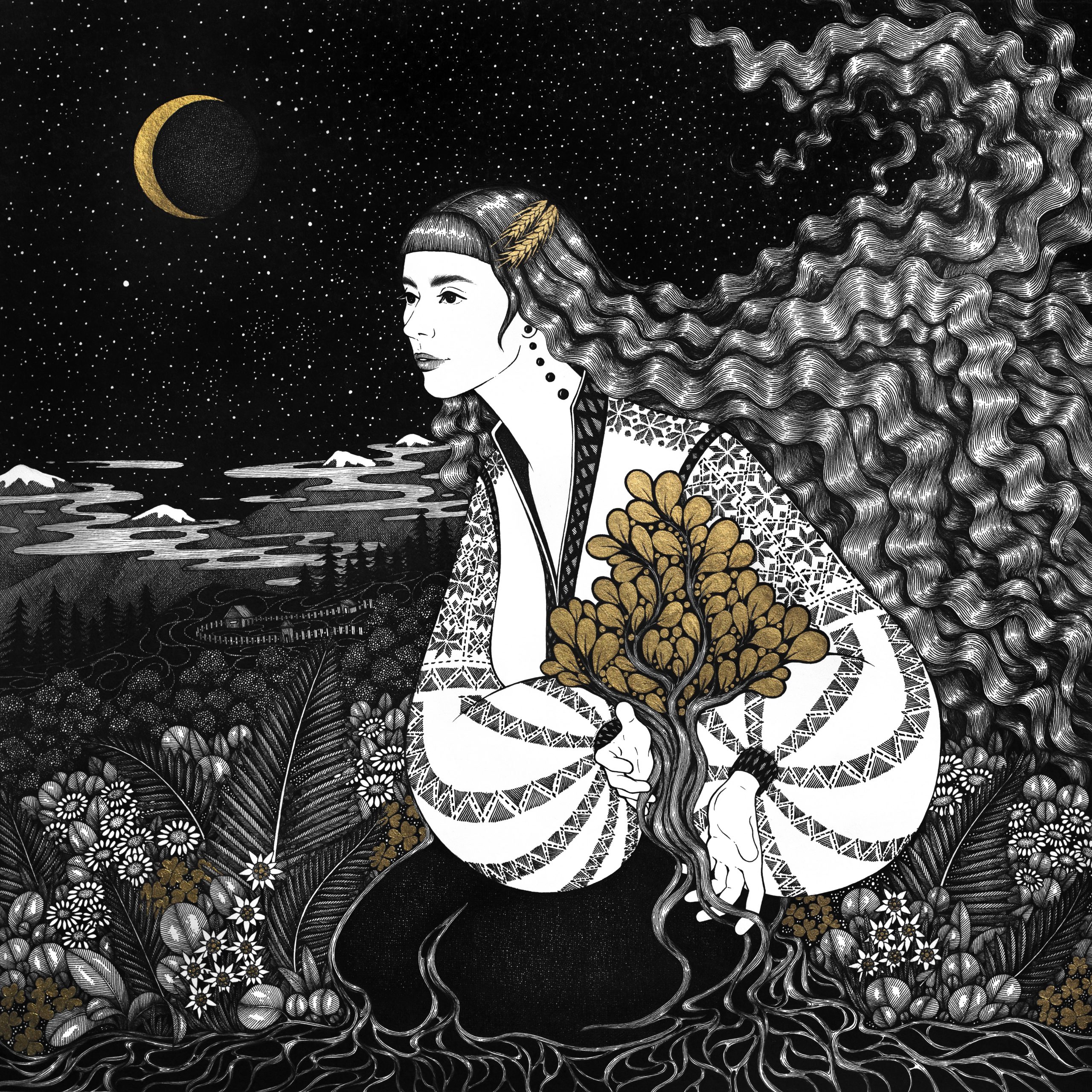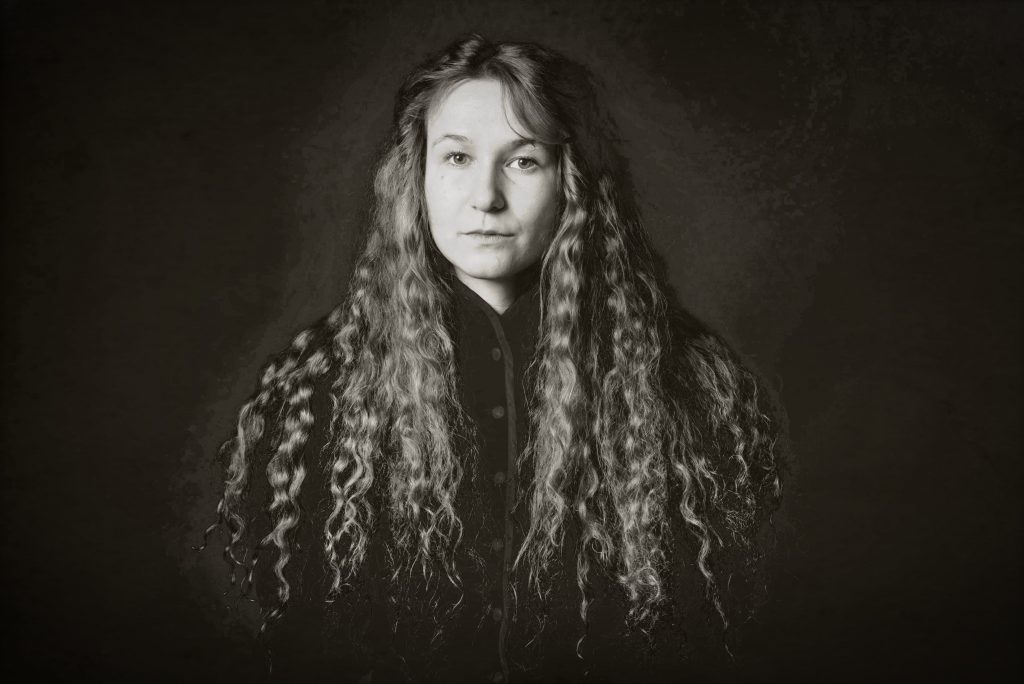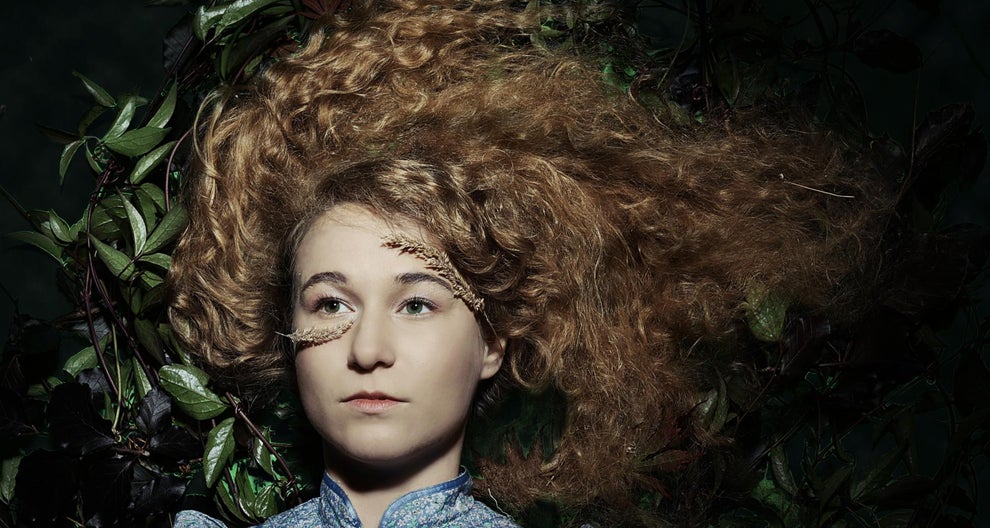Next for us in Maltby at the Wesley Centre Live we see Honey and the Bear, a Suffolk folk duo who have ventured here for the first time with a sound more towards the indie folk, and a soundscape of music exploring the natural world. It is a nice addition as the weather starts to turn better, and the clouds retreat just a little bit more. As always, this venue is great on sound quality, value, atmosphere and friendliness. We are always keen to promote these venues where they exist and have attention to detail of both the core music experience and the little welcoming niceties.
Honey and the Bear are a duo, but here they are joined by Evan Carsen (assorted percussion including a bodhran of some description) and Tony Shaer (violin, flute, numerous). They are all really good, Shear is a versatile instrumentalist, Carsen has a most fantastic array of percussionist tools at his array which he works magic with. If there was a way of describing the sound that comes from Honey and The Bear, it is the balming wind that sails through the leaves and under the heat of the high afternoon sun. Nature can seem timeless in the odd moments, the band here encapsulate that gentle Spring and Summer brightness that rarely exists in the UK. Nevertheless the one time it is a scorching day, it is baked into the memory of us old ‘uns and thought fondly of each time.
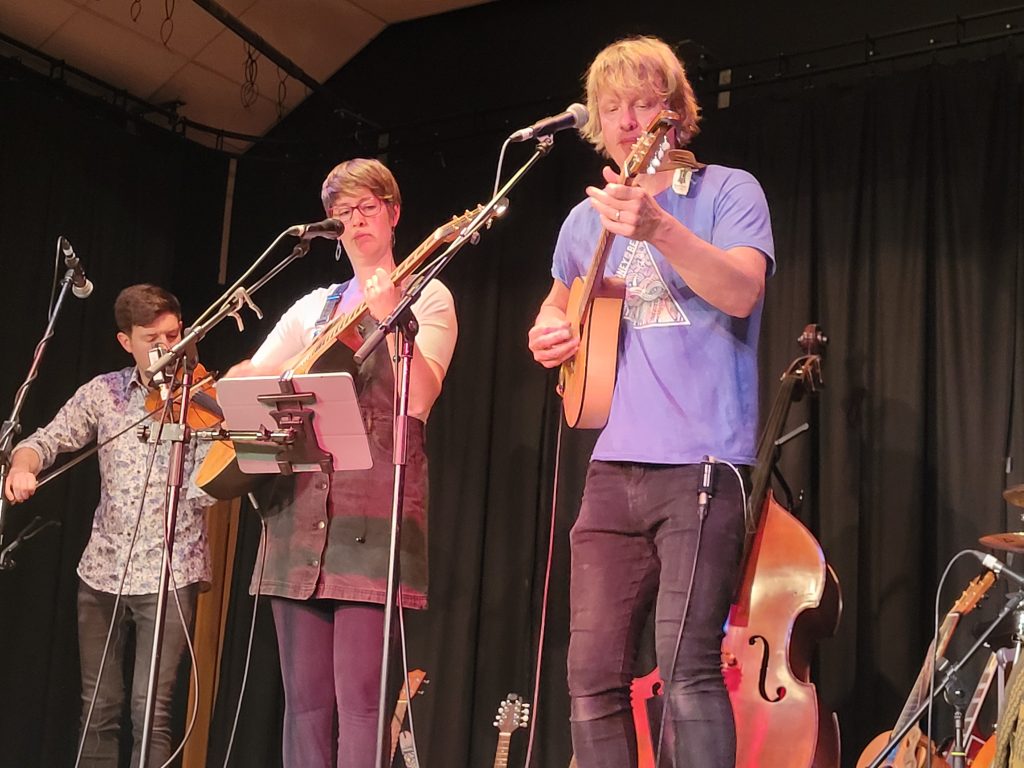
In terms of subject and spread of the set, we have songs that cover tales from their geography and industry, lesser known but accomplished celebrities, and the odd folklorist tale here and there. There is a lot to listen to, and a lot to enjoy, so we will give you a snapshot.
Let us start with what wets our whistle the most, the folklore. Here the band talk of and sing about “Black Shuck”, a black dog (if memory serves with eyes like “saucers”) who terrorises no-er do wells outside in Suffolk. With it’s drums pounding in simplicity, as an audience we indeed “fear the black dog” when it calls. Early in the set it highlight’s the duo’s natural tones away from large instrumentation, it cannot be beat. A lighter, more breezy number later on which is almost it’s mirror is “Tinker”, a palate-cleansing song, a ramble through nature and in a sense, pure sensation. The immersiveness of Honey and the Bear is hard to deny, and much like the song says, “the soul of the forest is drifting in”.
“Finn’s Jig” is from their album “Away Beyond the Fret” which concerns their little son Finn with the song being dedicated by his older sibling Ash to commemorate his being. Blazing with woodwind, it is expansive and optimistic, “we can be daring, we can be strong, we’ll be explorers, we’ll get the job done” it reminds of those artists who have encapsulated the world through their child’s eyes in sing such as Megson and Kate Rusby. Highly melodic and light it has a youthful essence that burns bright. Similarly in the set, there is also “The Swallow” a pacey, nature-bounding escapade into the wild, a road trip through the Summer and a song full of indie folk sensibility. Here you get a sense of “Honey and the Bear” as you listen to the playful intermix of major vocals, the gentle simmering backing vocal and the hayful footpedal leading forward the epitome of their image and sound.
“Over Land and Over Sea” is a good historical number that charts the work of people from Garrett’e Engineering Works with the “Living Van”. The engines that are transferred overseas are so big the driver would continue on with them in these vans, the name given to a wooden trailer that is towed behind for the worker to live in away from home. On delivery they would then have to return home without a vehicle to move them.. and this could take a while. The percussion is industrial, the guitar is moody, and Lucy’s voice is lifting, mysterious and willowy. It has a bounce and hypnotic quality like the introspection in the mind of a long distance driver coming up to Hamburg.
Honey and the Bear have a good setup with a generally gentle sound that is bolstered by a great harmony. This earthy, green sound is bolstered by an expansive number of instruments (seriously you cannot see the wood through the strings) which are played pitch perfect by all. Honey & The Bear are a band of balance, they have a few songs influenced by this and that, natural and man-made and it is all tied into that essence, that feeling of bird song and sunshine.
Wesley Centre Live has some more gigs starting in October, check out their Facebook page here.
More Information about Honey & The Bear can be found here.
